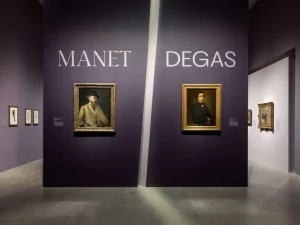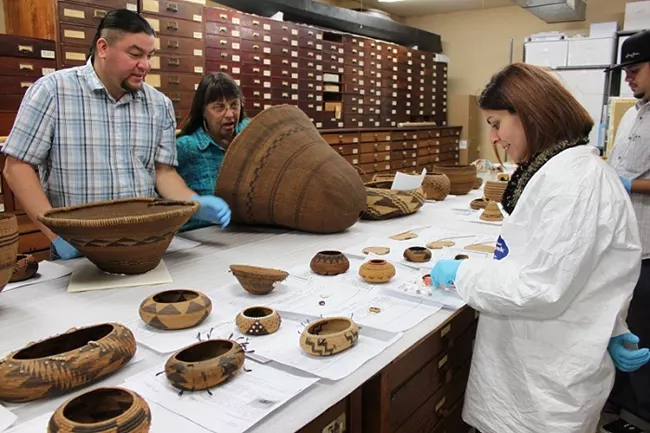The Metropolitan Museum of Art (referred to as the Met) is a traditional art museum founded in 1870 by artists and the elite of New York City. The stairs one must climb to simply get in always reminded me of some kind of art centered pilgrimage. In college, this was a place of wonder, a safe haven, and the ideal place to cry in public on a Thursday morning (a story for another time). But lately, this legacy of prestige and tradition is at odds with the most recent Great Hall commission by artist Jacolby Satterwhite. The Met has a long history of picking and choosing when they make statements about their operations, support of different communities, provenance challenges, and when long held beliefs about what a museum is and should be are challenged.

The latest addition to this history of controversy is “A Metta Prayer”, a video installation piece by Satterwhite, that takes the concept of the Buddhist metta prayer and turns it into an affirmation of self. Satterwhite is a black, queer artist who is interested in the intersection of humanity and the digital world. “Metta Prayer” is an audio/visual experience in which 3D scans of himself, dancers, drag wrestlers, Solange Knowles, and even a selection of objects from the Met’s collection have been made to move and interact like a video game playthrough. There is a soundtrack as well, described by the New York Times as “an acid house beat”. This would all seem like a harmless enough display for the city of New York, but many parents in the Upper East Side neighborhood have been raising concerns over the words and imagery that children are exposed to as they see the piece. Many have claimed the costumes worn by the performers to be satanic, and the use of the word “fuck” to be inappropriate for a museum. But perhaps the most ironic thing about this whole situation is that parents are up in arms about a new piece of art but are completely fine and even excited to take their children into the Manet/Degas exhibition only a few galleries away.

Inside the exhibition is perhaps one of the most scandalous paintings of the 19th century: Manet’s “Olympia”. When it first debuted at the Salon in 1865, it drew ire from the public. The pose and setup of the image was akin to a traditional reclining Venus (think Titian’s “Venus of Urbino”) but the woman is clearly a courtesan and she is staring directly at the viewer, as if to make them uncomfortably aware she knows they are looking. In 1865 this was the most salacious thing to be put on the Salon walls – this woman was not a reflection of the goddess Venus; she was a prostitute. Even though most models for painters at the time were sex workers, keeping the visual cues of what she was paid for (the flowers, robe, etc.). Viewers at the time were so up in arms about the work that extra security had to be brought in so that fights would stop breaking out. However, this painting is now best known as a masterpiece by a forward-thinking artist. The image is a nude woman that is aware she is being watched. The questions this all leaves me to ponder are the following: how much time does a work need to go from scandalous to inventive? Why is it that parents view nude paintings on the walls of the Met as educational and classy, yet this new piece (which does not show any breasts or genitals) as “satanic” and “trying to indoctrinate children”?

The closest I have come to a real answer to either came from some excellent points made by TikTok user @meelzonart in a video that points out all the parallels of scandal between the two pieces. My biggest takeaway from this whole situation is that there is no real answer to these questions; there is only context and framing. When “Olympia” first debuted, she was seen as a blight to art. However, since we now experience her within the context of world-renowned art museums, she must be a great piece and have greater meaning. But meaning also comes with age and reflection. In a world that is full of crop tops, “booty enhancing” leggings, and more exposed bodies seen regularly by the public, the scandal of “Olympia” seems almost trivial, like an exposed ankle in the Victorian era. But with the more modern context of video games, queerness, and the emphasis on making POC voices heard in the museum, perhaps the reflection of the world in “Metta Prayer” is an uncomfortable confrontation between modernity and the more traditional hallowed space of the museum. Maybe Satterwhite has just given us a new “Olympia”.







